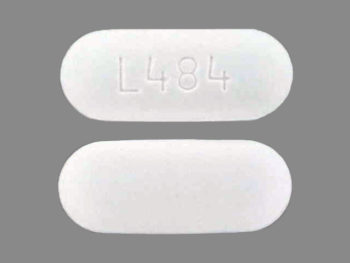By Maria Thacker-Goethe
We are seeing economic loss, strain on our health care systems and an unimaginable loss of life in our country due to the coronavirus pandemic. While we have confronted many challenges in the medical arena in recent months, our health care supply chain – which ensures that lifesaving medications are available to all Americans – requires a sharper focus.
From the beginning of this pandemic, Georgia life sciences companies have fought to speed up the development of a COVID-19 vaccine and various lifesaving therapies. Some companies, however, have faced limits on their ability to drastically increase production because of dependence on foreign countries for key ingredients and materials. In some cases, this has meant drug shortages.

Fortunately, legislation recently introduced in Congress would help solve this problem.
In April, the U.S. Food and Drug Administration (FDA) reported a shortage of acetaminophen, a key over-the-counter fever reducer and painkiller. About 70 percent of the acetaminophen used in the United States comes from China, and border closures and quarantine measures related to the pandemic led to a sharp drop in Chinese exports of acetaminophen and other pharmaceutical chemicals. This led to many Americans, including many Georgia patients, being unable to get acetaminophen and other critical drugs.
Drug shortages like this have become more frequent over the past decade, in part due to an overreliance on pharmaceutical ingredients from overseas. Approximately 72 percent of active ingredients used in common household prescription and over-the-counter medicines are manufactured abroad. They are made in more than 150 countries, with 13 percent coming from China alone.
Patients in this country should never be faced with this type of situation. Not only should all Americans have the prescription medications they need, we as a nation should have the ability to manufacture lifesaving medications instead of relying on other countries. In order to ensure that Georgians can continue accessing the medicine they need, even in the midst of a pandemic, we need policies that encourage and incentivize domestic production of medicines.

U.S. Rep. Buddy Carter of Georgia recently introduced legislation that would help bring pharmaceutical manufacturing back to this country and create new jobs in economically disadvantaged areas. The Manufacturing API, Drugs, and Excipients (MADE) in America Act would incentivize pharmaceutical manufacturing in designated “opportunity zones” through tax credits that help level the playing field. The legislation would also improve FDA reporting of facility inspections, tighten relationships with overseas regulators, and streamline the FDA standardization processes for overseeing pharmaceutical manufacturing to help mitigate drug shortages with the use of Pharmaceutical Systems Solutions.
We need to produce more medicines in America and strengthen Georgia’s ability to support patients during and after the COVID-19 pandemic. The MADE in America Act is a lifesaving solution. It will not only solve drug shortage issues around the nation, but also create more jobs in this state, at a time when many Georgians are facing uncertain futures. The Georgia life sciences industry supports nearly 68,300 jobs at 1,960 companies, and is responsible for helping Georgia patients get the prescription medicines they need.
The MADE in America Act is an important step to better serve Georgia patients, and incidentally to increase the number of high-paying jobs in the Georgia life sciences industry, which will strengthen the whole economy of our state. By supporting domestic drug manufacturing, we will not only generate more growth and innovation, but our life sciences community will be able to better serve patients in our state by improving the supply chain that feeds medical innovation and keeps Georgia residents safe and healthy.
Maria Thacker-Goethe is the president and CEO of Georgia Bio and the Georgia BioEd Institute and can be reached at mthacker@gabio.org and on Twitter @MariaThackerG.

